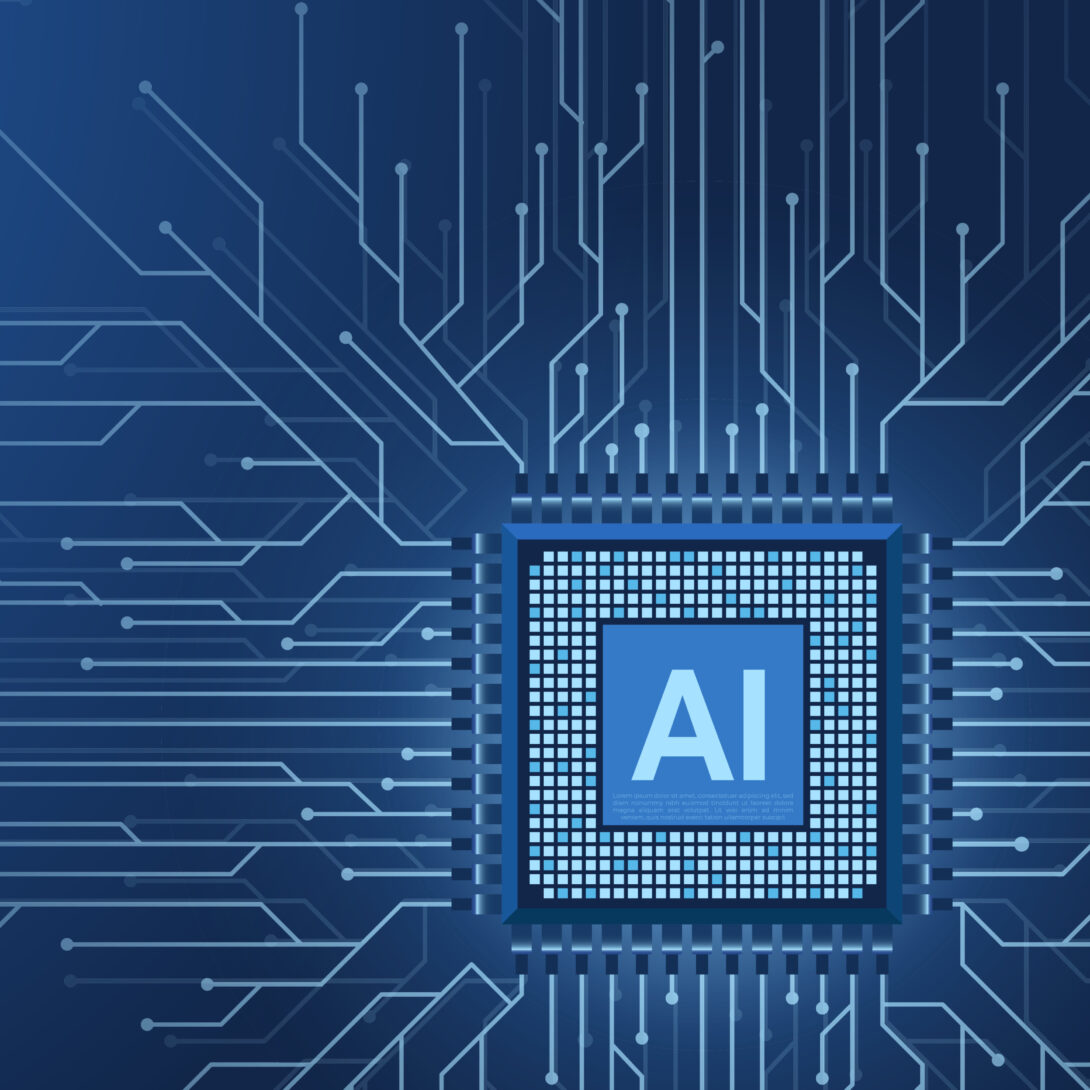AI in Healthcare
Learn from an expert about the impact artificial intelligence has on the healthcare industry and how it is poised to address health challenges and diseases.
AI in Healthcare

Having established itself in both business and society, artificial intelligence (AI) is on the verge of creating a significant transformation in the field of healthcare. By examining the intersection of technology and medicine, we can explore how AI is revolutionizing traditional practices, enhancing clinical decision-making, and contributing to improved patient outcomes.
“AI is at an interesting juncture,” said Dr. Jacob Krive, Clinical Associate Professor for the University of Illinois Chicago’s online Master of Science in Health Informatics (MSHI) program. “While its been confined to laboratories for most of its existence, AI is now a household name and the blend of general analytics, incorporating AI where necessary, holds the potential to bring meaningful changes to healthcare.”
AI-powered healthcare extends beyond virtual doctors and diagnostic AI. Today, we’re seeing advancements that focus on improving productivity and comprehension. With 83% of executives acknowledging the potential of science and technology capabilities to tackle health-related challenges and diseases, the adoption of AI-driven healthcare may initially seem gradual, but momentum is steadily growing.
Apart from teaching in UIC’s online MSHI program, Dr. Krive serves as the Senior Manager of Clinical Analytics at Endeavor Health, the third-largest health system in Illinois. He uses AI, machine learning, and clinical analytics to improve patient care. Specifically, he focuses on identifying cardiotoxic oncology treatments, referring patients to cardio-oncology specialists, and maintaining a risk score throughout the continuum of care.
“The prospect of deriving unique value from AI is what excites me,” said Dr. Krive. “Rather than aiming to replace humans, my focus is on leveraging AI to enhance our lives.”
AI Trends

Top AI Trends in Healthcare
There are AI trends that are predicted to make waves in the healthcare sector. Keeping his MSHI students abreast of the latest AI trends in healthcare, here are a few trends Dr. Krive recommends keeping an eye out for:
Quantum Computers
Quantum computers are the infrastructure that allows AI to run, and they have the potential to revolutionize healthcare. While quantum computing is still in its early stages of development, researchers are exploring its applications in solving complex problems that are beyond the reach of classical computers.
In the context of AI in healthcare, quantum computing holds promise in several areas, such as:
- Drug Discovery and Molecular Simulation: Quantum computers can efficiently simulate molecular interactions and chemical reactions, which are procrucial for drug discovery.
- Simulation of Biological Systems: Simulating biological systems, quantum computers can provide insights into complex biological processes and give healthcare professionals a deeper understanding of diseases and help design more targeted therapies.
- Machine Learning and Data Analysis: Quantum computers can better facilitate training of the complex models and help accelerate certain types of machine learning tasks leading to more accurate predictions and diagnoses.
Automating Drug Design
Traditional drug discovery is a time-consuming and expensive process that involves synthesizing and testing many compounds to find potential drug candidates. AI technologies, including machine learning and deep learning, are increasingly used to streamline and automate various stages of drug design.
While it typically takes an average of 15 years to bring a successful drug to market, involving exploration through hundreds of biochemical or biological pathways, only a few of the most promising pathways advance to clinical trials after years of laboratory work. The hope is that one of these pathways will eventually lead to a life-saving drug, however there are times none successfully make it to the market.
“High costs, often in the billions, are incurred due to labor, lab, and other expenses,” said Dr. Krive. “AI can potentially reduce time and costs by identifying viable candidates early, transforming drug development from a 15-year, multibillion-dollar effort to a more efficient process.”
Digital Twins
A digital twin in the context of AI in healthcare refers to a virtual representation or model of a physical entity, such as a patient, organ, or medical device. This digital twin is created by combining health data from various sources, including electronic health records (EHRs), medical imaging, genomic information, and real-time patient monitoring. The goal is to create a comprehensive and dynamic simulation that can be used for analysis, monitoring, and decision-making.
“The latest concept of digital twins enables the computer to analyze the possible outcomes and effects on the patient before implementing any invasive procedures or medications,” said Dr. Krive. “Healthcare professionals can let the computer run through the cycle of data where we can understand questions such as ‘Will the drug or therapy or procedure help?’, ‘What possible adverse side effects may this therapy cause?’, and ‘What will be the potential outcome be for the patient?’”
Although the realization of digital twins may appear distant, there will be a high demand for healthcare professionals who can integrate data from genetic studies, clinical records, and demographic information, coupled with the expertise to develop algorithms for computer processing.
Education in Healthcare AI
The healthcare industry will require more health informatics professionals with the knowledge and skillset to help organizations effectively manage new technologies to optimize healthcare delivery and improve patient outcomes. The University of Illinois Chicago offers an online Master of Science in Health Informatics (MSHI) degree that prepares students to become leaders in digital health and data science. This 100% online asynchronous program can be completed in 30 months.
The MSHI curriculum allows students to develop knowledge and skills in data collection, extraction, manipulation, network architecture, data analysis and visualization, predictive analytics, and more. Taught by Dr. Krive, the BHIS 542: Artificial Intelligence course gives students an introduction to artificial intelligence and its application in healthcare. The competencies addressed include healthcare data interoperability standards, supervised and unsupervised predictive models, fuzzy logic, programming for AI and non-AI methods, and natural language processing quickly revolutionizing healthcare and many other fields.
Take the next step in your career and talk to an enrollment specialist to learn more about UIC’s online MSHI program.
Navigating the Future of AI
As we look toward the future, the mastery of data extraction, manipulation, and visualization remains pivotal in leveraging emerging AI technology within healthcare. Staying updated on AI trends is crucial for healthcare professionals as it ensures they remain at the forefront of transformative technologies. This awareness enhances their ability to contribute to improved patient outcomes and positions them as leaders in leveraging AI for advancements in healthcare practices and decision-making.